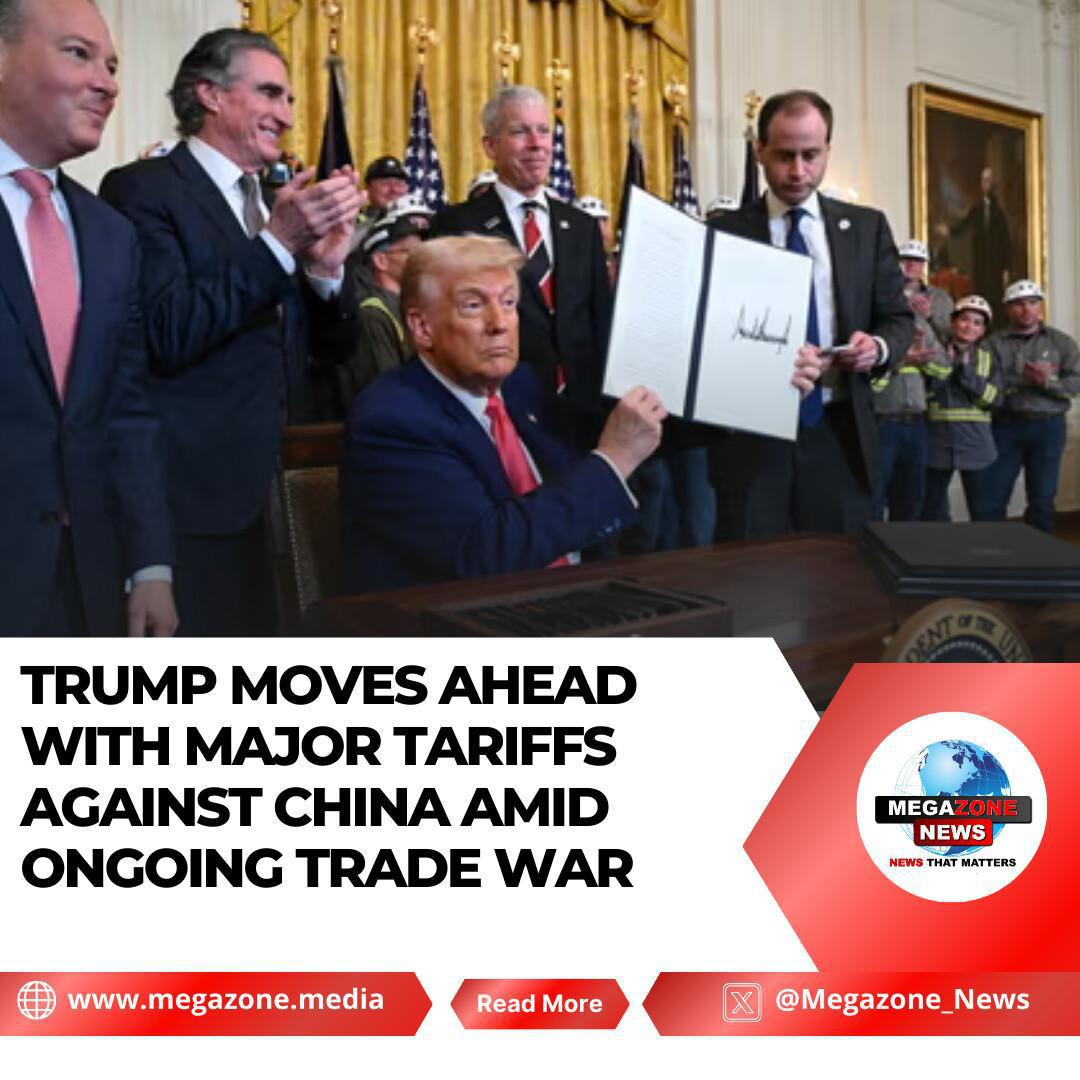US President Donald Trump on Tuesday pressed forward with imposing tariffs exceeding 100 percent on Chinese goods, after Beijing refused to retract its retaliatory measures. The move deepened the trade war between the world’s two largest economies, sending shockwaves through global markets and escalating recession fears.
Since Trump’s tariffs were enacted over the weekend, the global economy has been rocked, leading to a significant market sell-off. As of Wednesday, additional tariffs will increase the cost of imports to the United States from dozens of countries. The most significant impact will be on China, which has seen tariffs on its products rise to a staggering 104 percent under Trump’s second term.
Despite US stock markets tumbling on Tuesday, Trump remained resolute, believing his tariffs will force companies to relocate their manufacturing to the US and revive its manufacturing base. However, economists have raised concerns about the potential for higher inflation as prices climb due to the tariffs.
Trump boasted on Tuesday that the US was “taking in almost $2 billion a day” from the tariffs, and revealed that after China retaliated with its own 34 percent tariff on American goods, he imposed an additional 50 percent duty. This marks a cumulative tariff increase on Chinese goods during Trump’s presidency to 104 percent.
The US president insisted that China is eager to strike a deal, claiming Beijing "wants to make a deal, badly, but they don’t know how to get it started." Additionally, Trump announced that the US would soon impose major tariffs on pharmaceuticals and sign an order allowing significantly higher duties on low-value Chinese imports starting next month.
As the global financial markets continued to struggle, with Asia’s markets plunging and oil prices falling, Trump’s trade policies were criticized by some international leaders. In a call with Chinese Premier Li Qiang, EU Chief Ursula von der Leyen urged de-escalation of the trade tensions. Meanwhile, French President Emmanuel Macron called for Trump to reconsider, warning of a potential EU response with tariffs on American goods.
In response to the turmoil, Trump’s administration has said it is working on "tailored deals" with other trade partners, including Japan, South Korea, Argentina, Vietnam, and Israel. However, key Trump ally Elon Musk voiced his frustration, criticizing White House trade advisor Peter Navarro for his stance on foreign parts in Tesla cars.
As the trade war intensifies, global markets and foreign exchange rates continue to feel the strain, with currencies like the South Korean won and China’s offshore yuan reaching historic lows.


